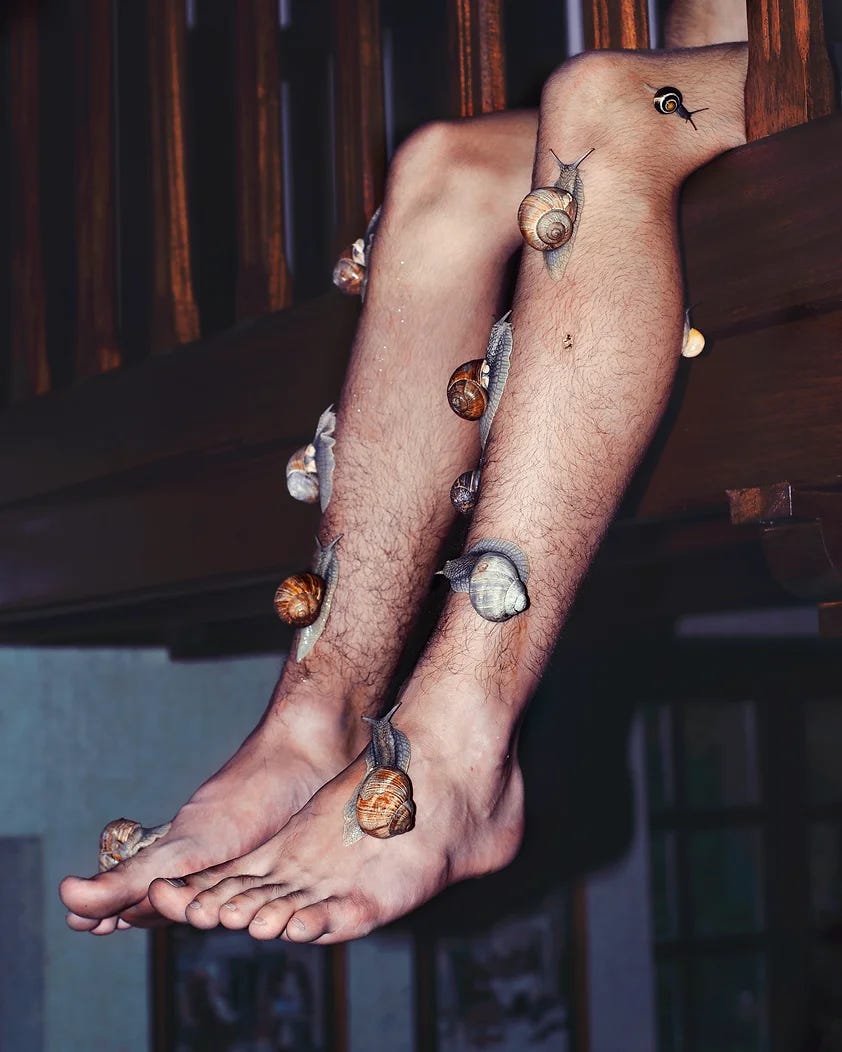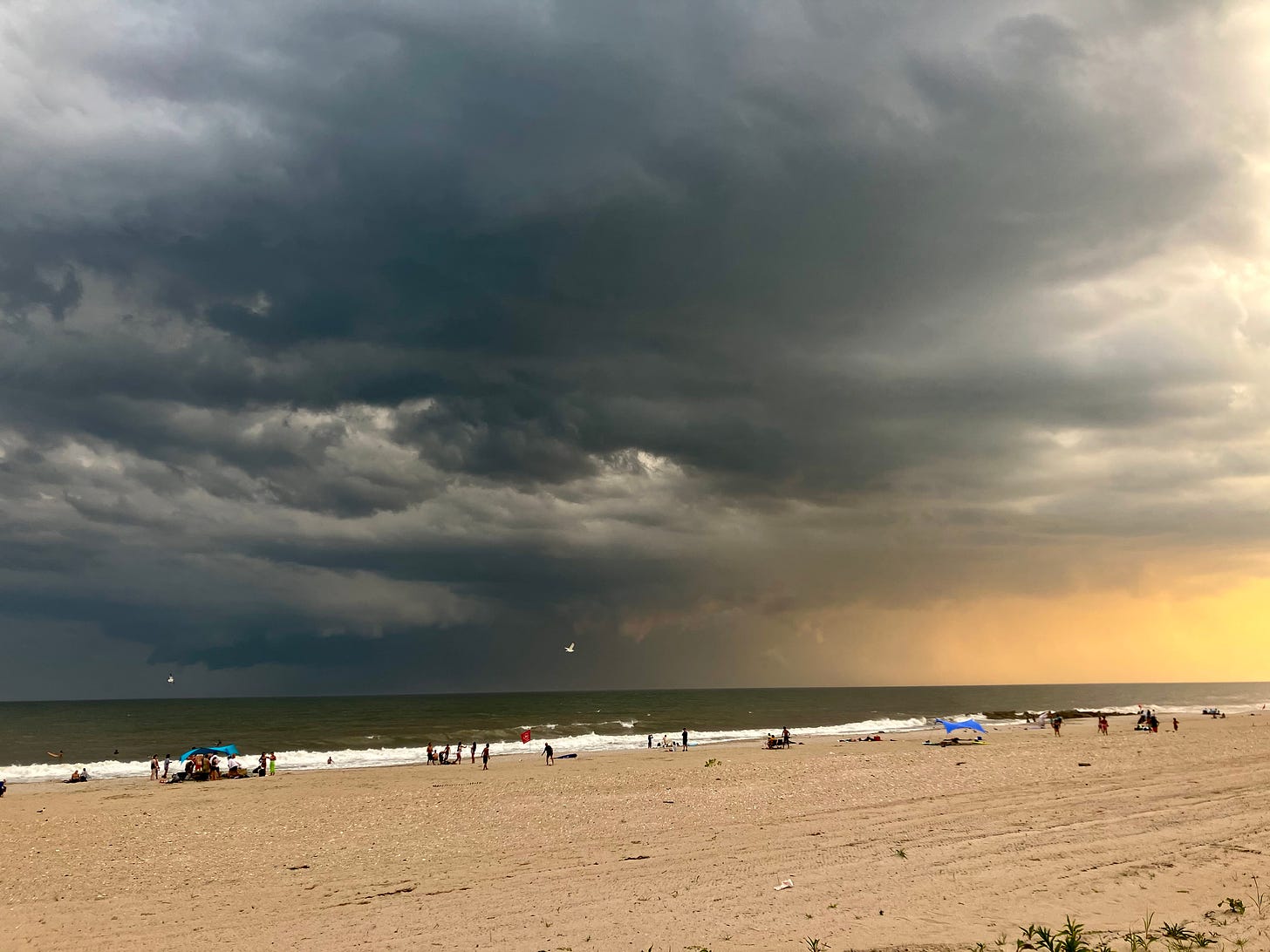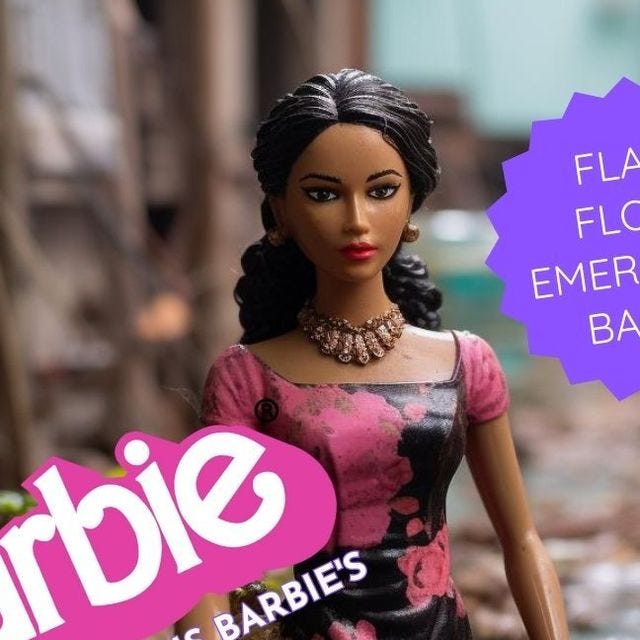
Thank you to all of the new readers & subscribers this month! If you’re in a position to give, I really appreciate it since times feel extra hard right now. As usual, 100% was redistributed and July’s donations went towards construction on Gina’s artist residency in New Mexico, reconstruction of Yu & Me Books following their devastating fire, helping women coming home from prison through Woman with A Plan.
Some other great places that received donations were the LGBTQIA+ library Stonewall National Museum & Archives, the outdoor movie theater Arverne Cinema, the Gowanus Mutual Aid and Clinton Hill Fort Greene Mutual Aid currently supporting migrants in our neighborhood. Reminder that this newsletter is forever free, but paid subscriptions are deeply welcome and you can see where donations go here.
The temperature has cooled off and the humidity is at a dazzling low since this weekend. It feel glorious beyond belief. The portable AC we finally bought has been dormant and even the fan is taking a break with the night breeze coming in through the open windows. My brain can process things again, compared to last week’s oppressive heat wave. Sarah texted me “The big cables holding up the Verrazzano-Narrows Bridge stretch as they warm up each summer, when the road hangs 12 feet lower than it does in winter. With the cycle of seasons, the bridge rises and falls, a breathing gray beast in the harbor fog.” It’s one of the many wild snippets from this excellent piece by Christopher Bonanos about the infrastructure in New York and the limits it can (and can’t) withstand.
We were all ready to watch Wade in the Water, an excellent documentary about the history of Black surfing, at the outdoor movie theater Arverne Cinema when suddenly the skies opened up. We ran next door to the brewery to take shelter while it monsooned. The downpour lasted twenty minutes, then we all helped towel off the chairs before starting the screening. I spotted Diane Cardwell who wrote her excellent memoir ROCKAWAY: Surfing Headlong into a New Life about learning to surf after her divorce, eventually moving to Rockaway only to witness the devastation of superstorm Sandy. I remember Laure and I coming out to help clear water from flooded houses and help with meals back in October 2012, generators humming in the parking lot of the Key Food supermarket.
The Rockaways will forever be a flood zone, no matter how much houses get raised, and it was on my mind when I learned about West Street Recovery, “a horizontally– structured and worker–directed disaster recovery nonprofıt” that was created in the wake of Hurricane Harvey in Houston. It’s a mutual aid group focused on rebuilding and planning for future floods using a both/and approach. They push for state action like advocating for city drainage, recognizing the need for structural change. But they also plan as if that will not occur, by preparing strategies that rely on each other, on how to survive the next flood.
Alex went on one of my favorite podcasts Talk Easy with Sam Fragoso and did an incredible job of being clearheaded about the current strike, hopeful about the future, vulnerable about his past and unflinching in his assessment of the dream machine. Conversations are resuming today, and a petition is circulating about removing the producers from the AMPTP. Netflix by design is meant to gobble up the rest of that coalition in their quest for absolute domination, so there’s a lot of plot twists that could lie ahead with a fractured opponent.
We are a Dr. Bronner’s household, buying a gallon at a time and decanting it into two smaller bottles, one in the bathroom for showering and one by the kitchen sink for dishwashing. The soap empire has a bonkers history, and this deep dive by Carrie Battan covers their unhinged labels (All-One, unifying the human race!), their drug and psychedelics policy reform efforts and their executive salary cap, at five times the lowest-paid employee’s, meaning no one can earn more than about $300,000 per year.
Biking is always my preferred way of getting around, and I have the deepest love for Citibike, the ride-sharing blue bikes that keep expanding all over the city. Their e-bikes have a real hold on me, turning me into an actual bat out of hell. They also have my vote for best public place to cry in New York - your tears dry in the wind as fast as you can leak them. Kira recently showed me how to access my stats and we are both in the top 1% of riders. She’s biked 3,000 miles since she first opened her account, the distance from Paris to Tehran!
I would be absolutely devastated if they were to go away and Lyft, who acquired Citibike five years ago, is now looking to sell it off. It seems like they’re just now realizing it distracts from their mission to get people riding in… cars. Citibank, who pays for the naming rights and gets some very effective advertising in exchange, could step up as could the City of New York, something that Adams actually pledged when he took office.
A couple of weeks ago, Cailin, Jacob, Landon and I saw The Wonders, Alice Rohrwacher’s second feature from 2014. Inspired by her upbringing in a family of beekeepers in Italy, it has a dreamlike quality, some of the best child acting I’ve ever seen, and a keen eye for rural life in all of its guts and glory. Her sister Alba stars as a character loosely based on their mother.
This week, Jinnie and I saw Return to Dust, an independent Chinese film by Li Ruijun recently banned by censors. Shot in Gaotai where the filmmaker grew up, the story follows a couple thrust into an arranged marriage, learning to care for each other despite failed crops, disability struggles and greedy landowners. The male lead Wu Renlin is played by the director’s uncle and is a lifelong farmer.
Both films feel in conversation with each other. There’s a soulful presence to them without overly romanticizing the hardships of agricultural life. The gestures are life-affirming whether it’s cleaning a floor soaked in honey or covering mud bricks from the rain. They also have similar antagonists trying to extract as much value out of their way of life (whether through urbanization, media exploitation or literal blood transfusions) at the cost of decimating it for good.
In 1951, Henrietta Lacks’ cervical cells were taken from her tumor without her consent before she died of cancer. Since then, scientists have cultivated them indefinitely, the first human cells to continuously reproduce themselves. HeLa cells have helped develop everything from the polio to COVID-19 vaccines, generating billions of dollars for biotech companies. More than 70 years later, her family has finally reached a settlement.
The bouquinistes in Paris are getting evicted for the Olympics for “security reasons” and it’s a damn shame. They’re the book sellers who line the banks of the Seine, selling secondhand books, magazines and postcards out of wooden stalls that are nearly 100 years old. “Despite frequent bans by various French kings, bouquinistes have been selling texts along the Seine since the 16th century, originally from handcarts, voluminous pockets and trestle tables.” The Olympics have a nightmarish history of pushing out locals all for international fanfare that leaves useless monstrosities in their wake.
Poet Hanif Abdurraqib on grief as spiritual practice: “That's the real gift, to say I am not just one person, I am multiple versions of a person and some of those versions of myself have been loved immensely by people who were so incredible. Through their loving of me I have a richer texture, and that texture that allows me to navigate the world in ways that I am not equipped to do so on my own. And that means that on my best days I get through the world, through the challenges of living, navigated by a whole host of people who have created a generous blueprint through which I have learned to maneuver this life well.”
O'Shae Sibley was murdered by bigots for dancing at a Brooklyn gas station. He was 28 years young. There is a memorial ball for him today organized by Black Trans Liberation. Please bring flowers and signs but no candles and if you can volunteer support, the form is here.
Kudzu by Saeed Jones from Prelude to Bruise (Coffee House Press , 2014)
I won’t be forgiven
for what I’ve made
of myself.
Soil recoils
from my hooked kisses.
Pines turn their backs
on me. They know
what I can do
with the wrap of my legs.
Each summer,
when the air becomes crowded
with want, I set all my tongues
upon you.
To quiet this body,
you must answer
my tendrilled craving.
All I’ve ever wanted
was to kiss crevices, pry them open,
and flourish within dew-slick
hollows.
How you mistake
my affection.
And if I ever strangled sparrows,
it was only because I dreamed
of better songs.
Till next time,
ASK



